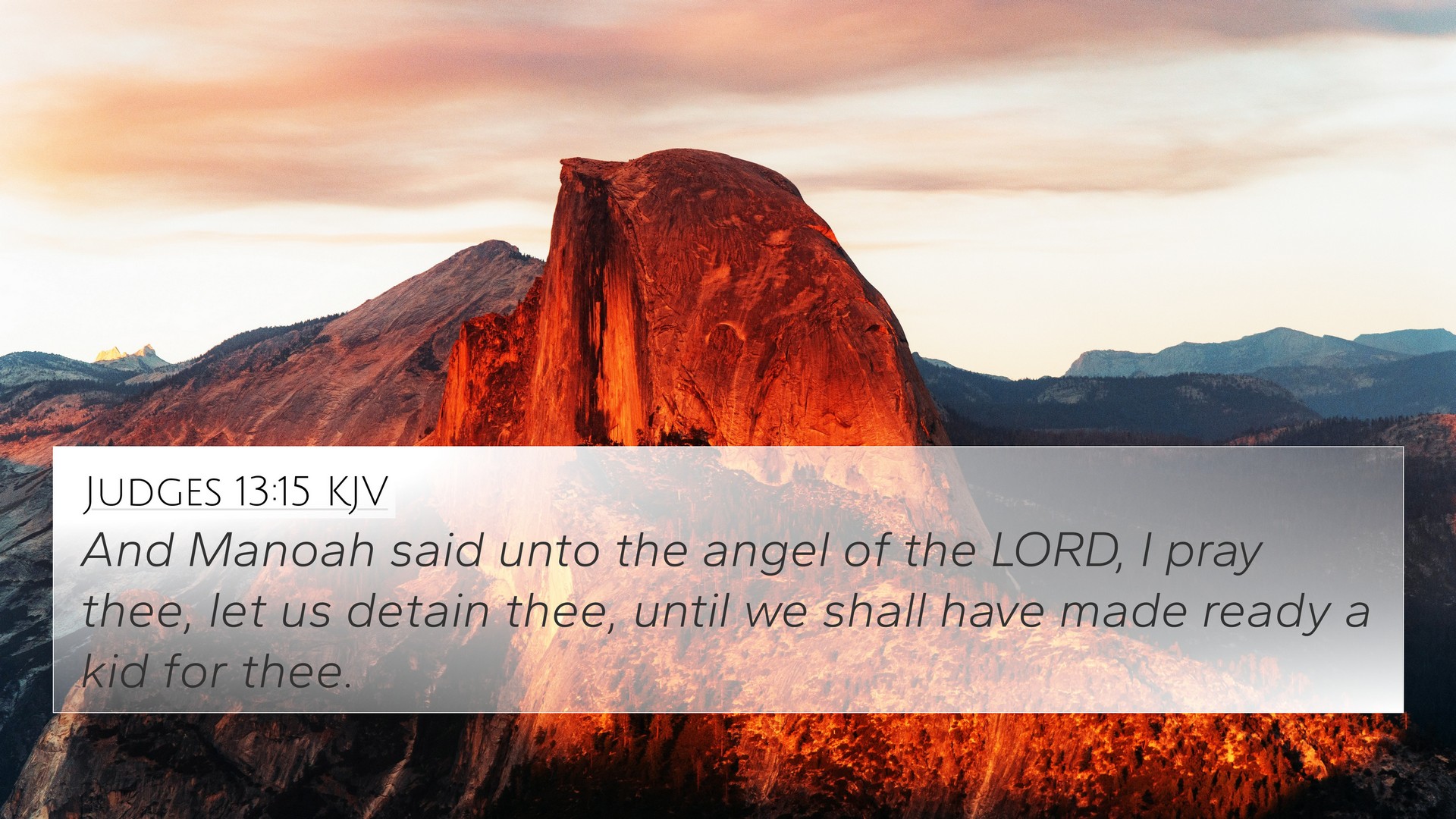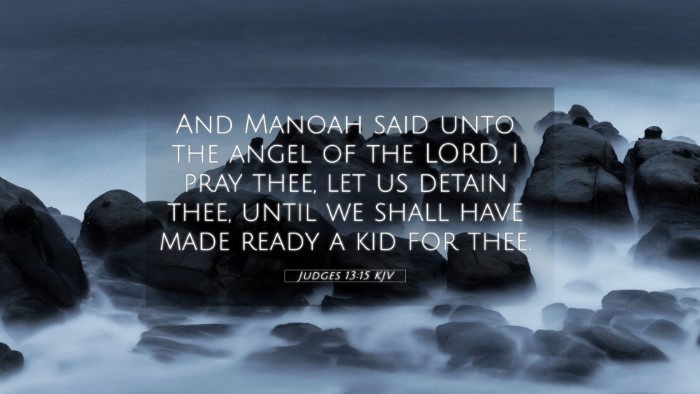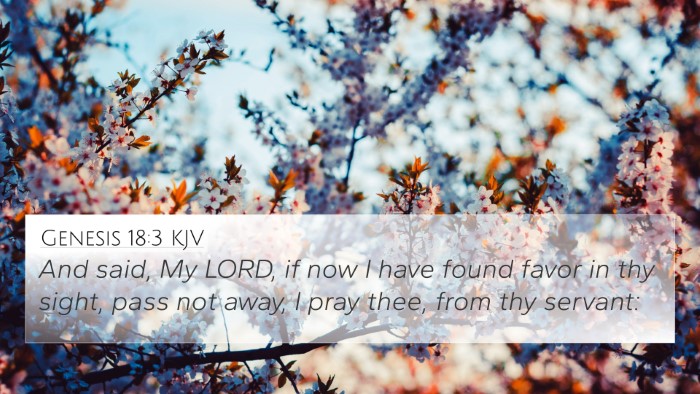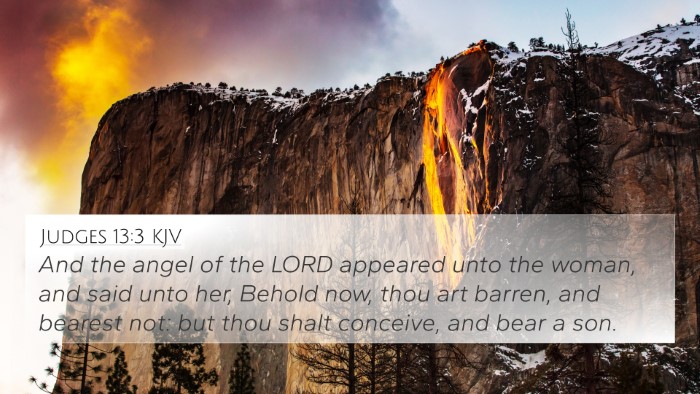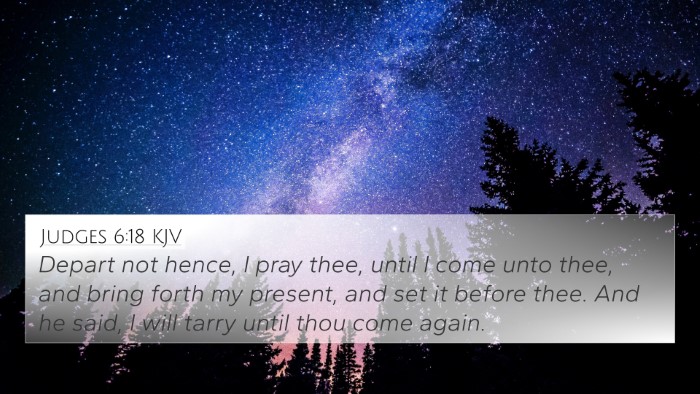Understanding Judges 13:15
The verse Judges 13:15 reads: "And Manoah said unto the angel of the LORD, I pray thee, let us detain thee until we shall have made ready a kid for thee." This moment in Judges captures an interesting interaction between Manoah and the divine messenger, showcasing themes of hospitality, the sacred, and the relationships between God and man.
Commentary Insights
This verse presents a series of deep theological and practical interpretations from various public domain commentaries.
Matthew Henry's Commentary
Hospitality as a Form of Worship: Matthew Henry emphasizes the value of Manoah's offer to the angel. Manoah's request reflects an attitude of reverence and hospitality traditionally extended to guests in ancient cultures. This illustrates a broader theme of recognizing the divine through practical actions.
Albert Barnes' Notes
Divine Encounters: Barnes highlights that Manoah’s desire to provide a kid (a young goat) is an expression of his understanding of sacrificial offerings. This request signifies his wish to honor the message of the Lord and perhaps to seek affirmation of the miraculous promises made about his future son, Samson.
Adam Clarke's Commentary
Symbolism of the Kid: Clarke points out the symbolism within the offering. By suggesting a kid, Manoah may be unconsciously referring to the sacrificial system established in the Law, anticipating the role of sacrifice in covenant relationship with God. Clarke further interprets Manoah’s actions as an attempt to secure more information regarding the divine announcement.
Thematic Connections
In examining Judges 13:15, one can draw connections to various themes in Scripture, illustrating the continuity of God’s message throughout the Bible.
- Hospitality and Sacrifice: This theme connects with Bible verse cross-references, such as Hebrews 13:2, which speaks to not neglecting hospitality as it can entertain angels unaware.
- Divine Appointments: Reflected in Exodus 23:20, where God promises to send an angel before His people, affirming His divine presence.
- Understanding of Divine Messengers: Similar to Genesis 32:24, where Jacob wrestles with a divine being, reflecting human interaction with God.
- The Role of Angels: This verse aligns with Revelation 1:1, indicating the angelic role in revealing God’s intents.
- Covenant and Promise: Reflects Genesis 17:7, where God speaks of establishing a covenant and reveals His commitments to His people.
- Sacrifice and Atonement: Echoed in Leviticus 5:6, which describes the necessary offerings for sin and transgressions, connecting Manoah's actions to the sacrificial system.
- Faithful Responses: Relates strongly to Luke 1:38, where Mary responds to the angel's news with faith—both serve as models of faith in the face of the miraculous.
Cross-Referencing Biblical Texts
Engaging in cross-referencing Biblical texts like Judges 13:15 provides a richer understanding ofScriptural teachings and themes.
This technique builds a bridge between both the Old and New Testaments, demonstrating how biblical narratives and characters reflect divine ideals and intent.
Tools for Bible Cross-Referencing
Utilizing tools is essential for a thorough cross-reference Bible study.
- Bible concordance: This resource lists words and their occurrences, helping locate themes like hospitality.
- Bible cross-reference guide: Useful for finding related verses across canonical texts.
- Bible reference resources: Commentaries that explore connections between verses deeply, offering insights into their meanings.
- Bible cross-reference system: Incorporating a systematic approach can enhance your understanding of linking Bible scriptures.
The Importance of Inter-Biblical Dialogue
Understanding the relationships between Bible verses that relate to each other through inter-biblical dialogue is crucial. Themes in Judges 13:15 might guide readers to explore:
- Inevitability of divine messages
- The importance of human receptivity towards God
- The role of language and offerings as acts of devotion
Conclusion: Engaging with Scripture
Judges 13:15 opens a window into a profound biblical encounter. Through deep analysis and thorough cross-referencing, one can appreciate the themes of humility, divine promise, and the necessity for understanding God through enacted faith and works. The continuity of biblical themes demonstrates the interconnectedness of God's message from the Old to the New Testament.
